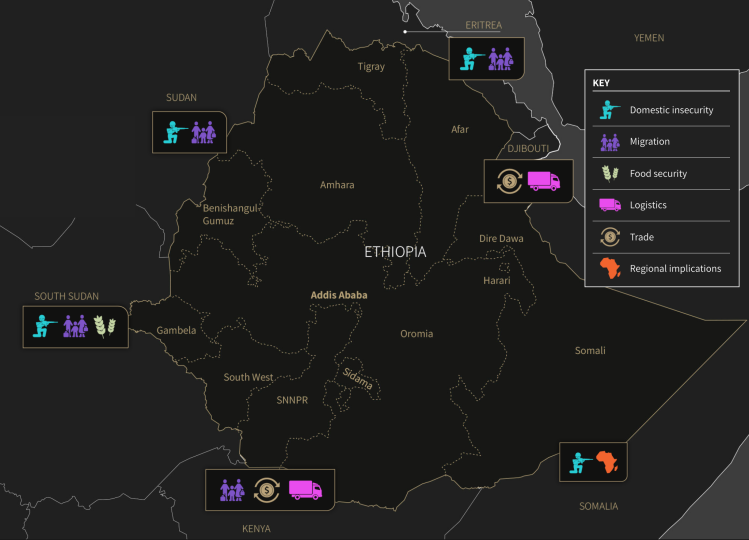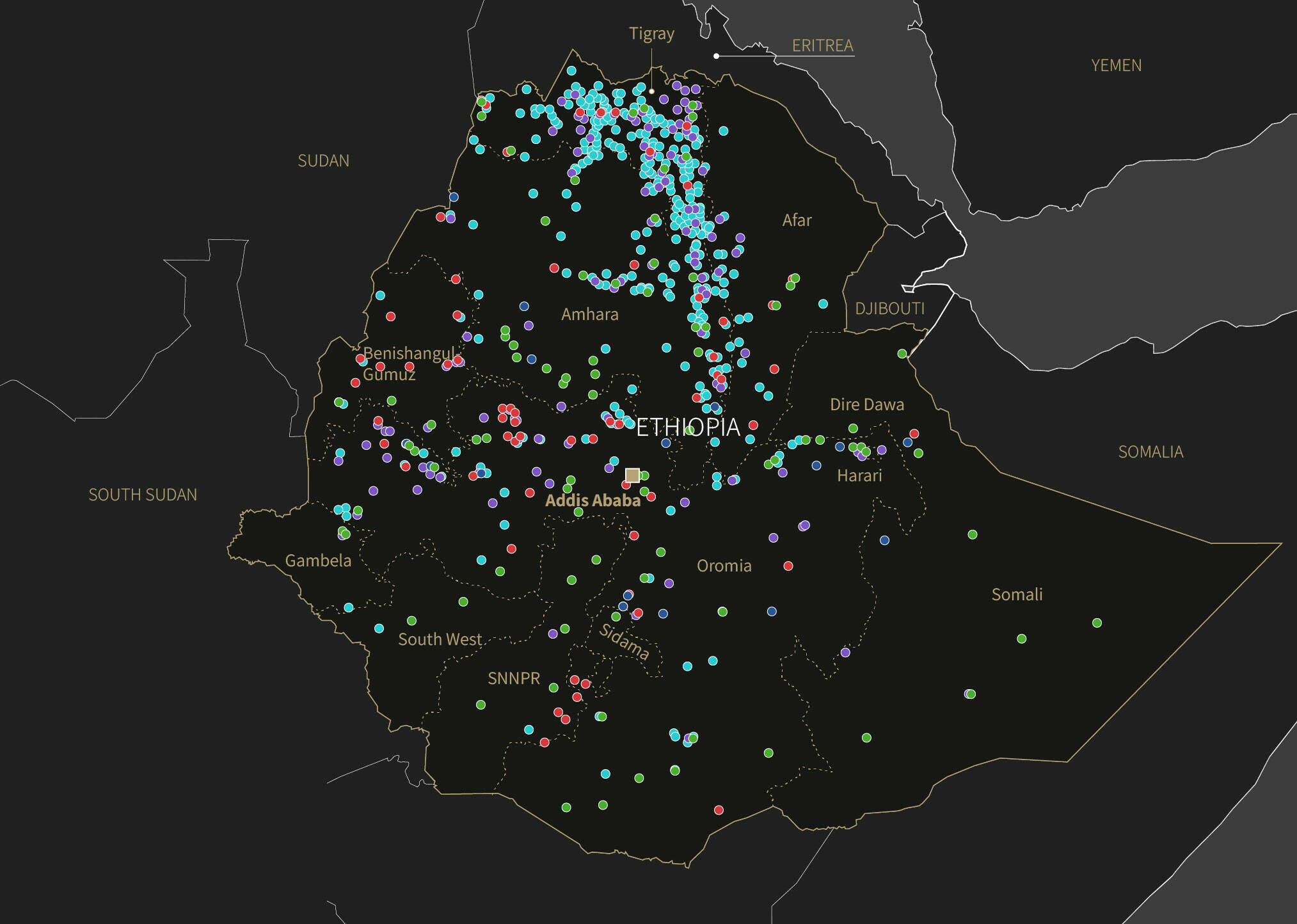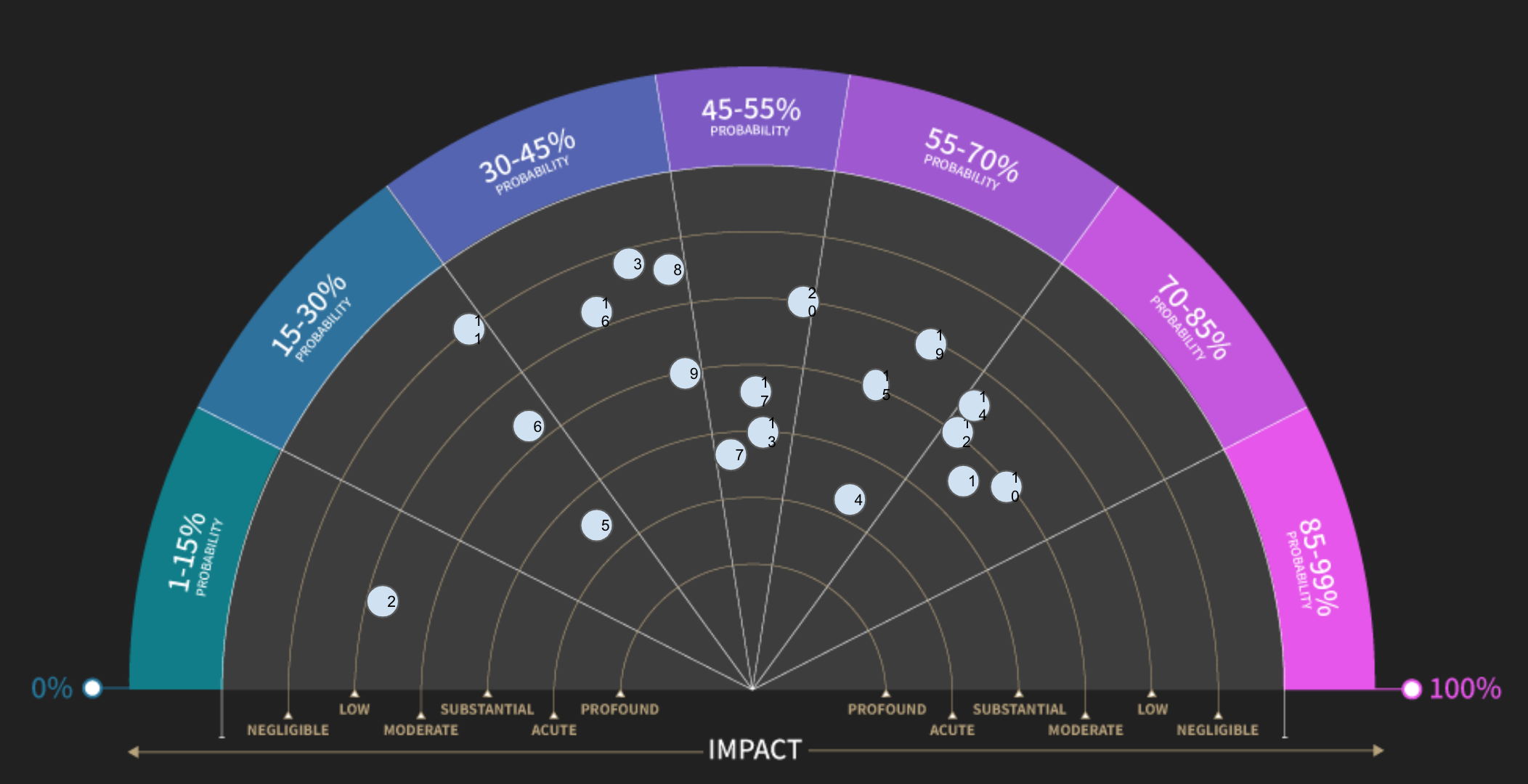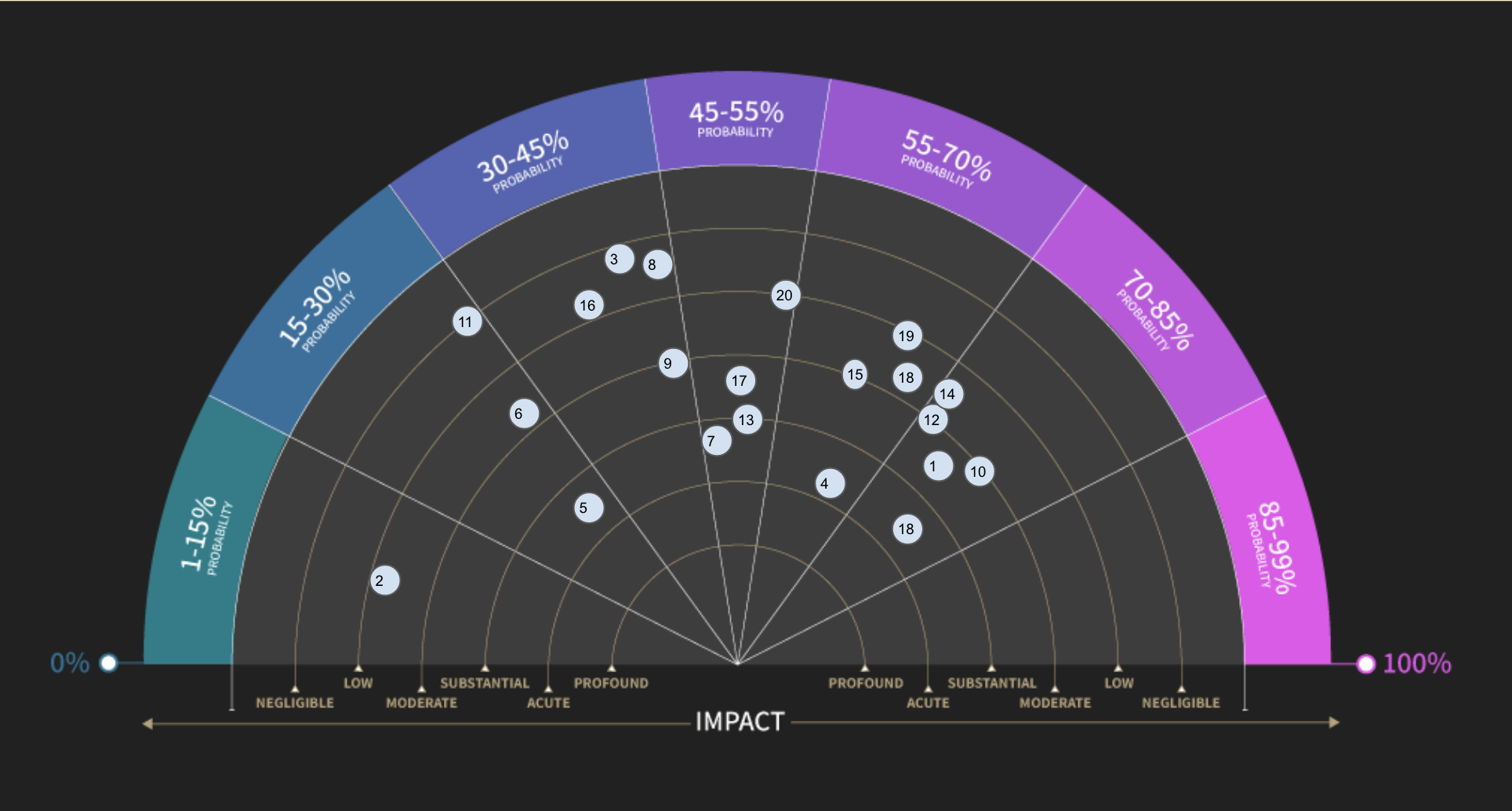Change is coming


A spread of the civil war,
the resulting humanitarian crisis, and a potential
genocide in Ethiopia would
also have broader and potentially profound implications for stability in
East Africa and beyond.
Southern Africa


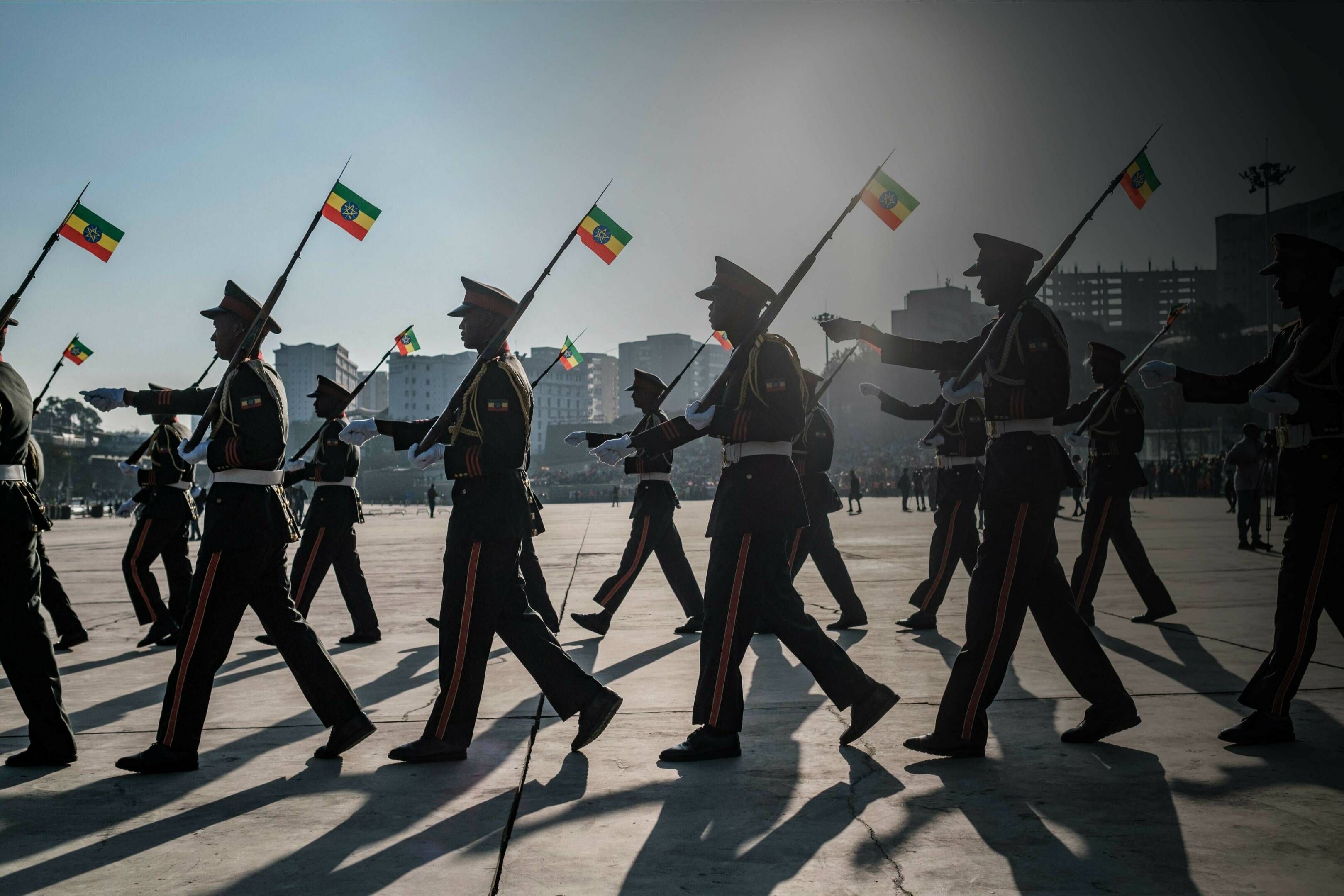
Insecurity in Ethiopia
Regional implications
Engulfed by Ethiopia’s crisis
Insecurity and instability in Ethiopia are likely to persist into 2022. As well as the civil war between the Ethiopian government and the TDF and its allies, there is pervasive inter-communal and militia violence. The crisis in Ethiopia is also spilling – and is likely to further spill – over into other regional countries, affecting security, migration patterns and economic growth.
Domestic insecurity
Migration
Food security
Logistics
Trade
Regional implications
KEY

CLICK ICONS ON MAP
TO SHOW INFORMATION






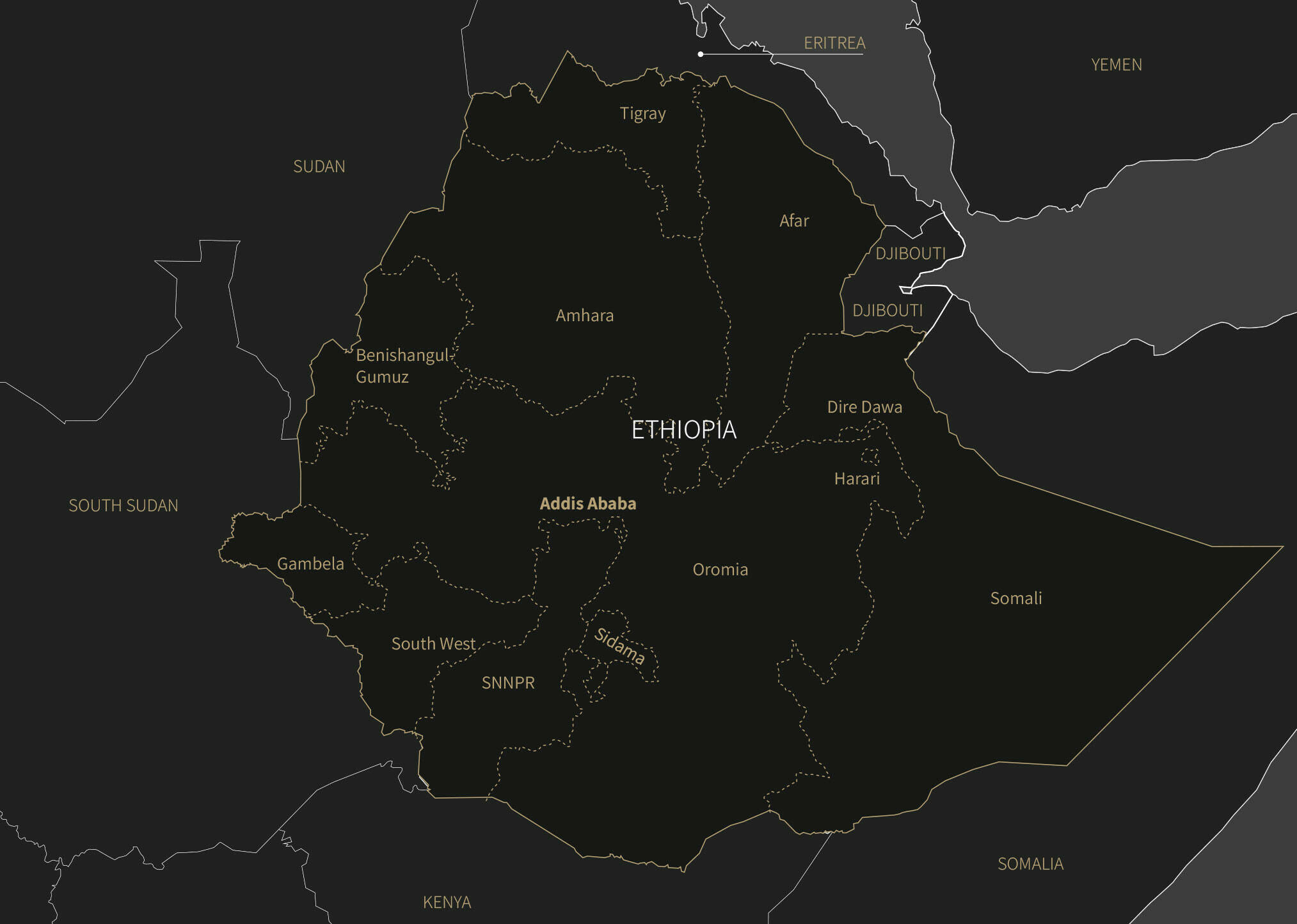
Change is
coming
A build-up of systemic weaknesses, socio-economic pressures and political factionalism across much of East and Southern Africa will very probably come to a head in 2022. The region as a whole will be particularly exposed to the destabilising effects of highly probable crises in two of its leading economies.
We forecast further outbreaks of large and potentially-violent protests and unrest in South Africa in 2022. The government is distracted by a split in the ANC party, meanwhile the economy continues to suffer. GDP in per capita terms has fallen each of the past six years, while unemployment has risen steadily over the past decade, with almost half of all young adults out of work.
The impact of the Covid-19 pandemic is almost certain to drag well into 2022 in South Africa. Recent periods of violent unrest, such as in KwaZulu-Natal and Gauteng in July 2021, have hampered foreign investment and economic growth. These are very likely to recur. Caught in a cycle of ongoing governance challenges and Covid-19 hindering recovery, there is little prospect of these negative economic trends reversing in 2022. The frequency of outbreaks of unrest and demonstrations has exploded in recent years, as public patience with worsening socio-economic conditions wears thin.
Frustrations over poor public services and standards of living will remain the two most probable triggers for a sudden outbreak of protests and unrest in South Africa in 2022. But ongoing tensions and factionalism in the ANC party are also likely drivers of civil disquiet. It is widely accepted that supporters of the former president Jacob Zuma were responsible for instigating the violent unrest in KwaZulu-Natal in July. And we warn that Mr Zuma and his supporters will probably try to instigate similar commotion in 2022, as a way to undermine the president. Flashpoints for this include Mr Zuma’s ongoing corruption trial, and the leadup to the ANC party conference in December 2022. >>
Ethiopia is already in a state of civil conflict, which shows every sign of intensifying, destabilising the state, and drawing in outside powers. And South Africa is vulnerable to significant political and social upheaval in the coming year.
This will hurt the growth and long-term stability prospects for both. And as leading economies in the region, crises in both countries will have knock-on implications for their neighbours, allies and adversaries, including on migration, economic growth and trade. Separately, we anticipate that other major economies with contentious elections, such as in Angola and Kenya, are likely to get through 2022 largely unscathed. But they are exceptions to what is a broadly negative outlook.

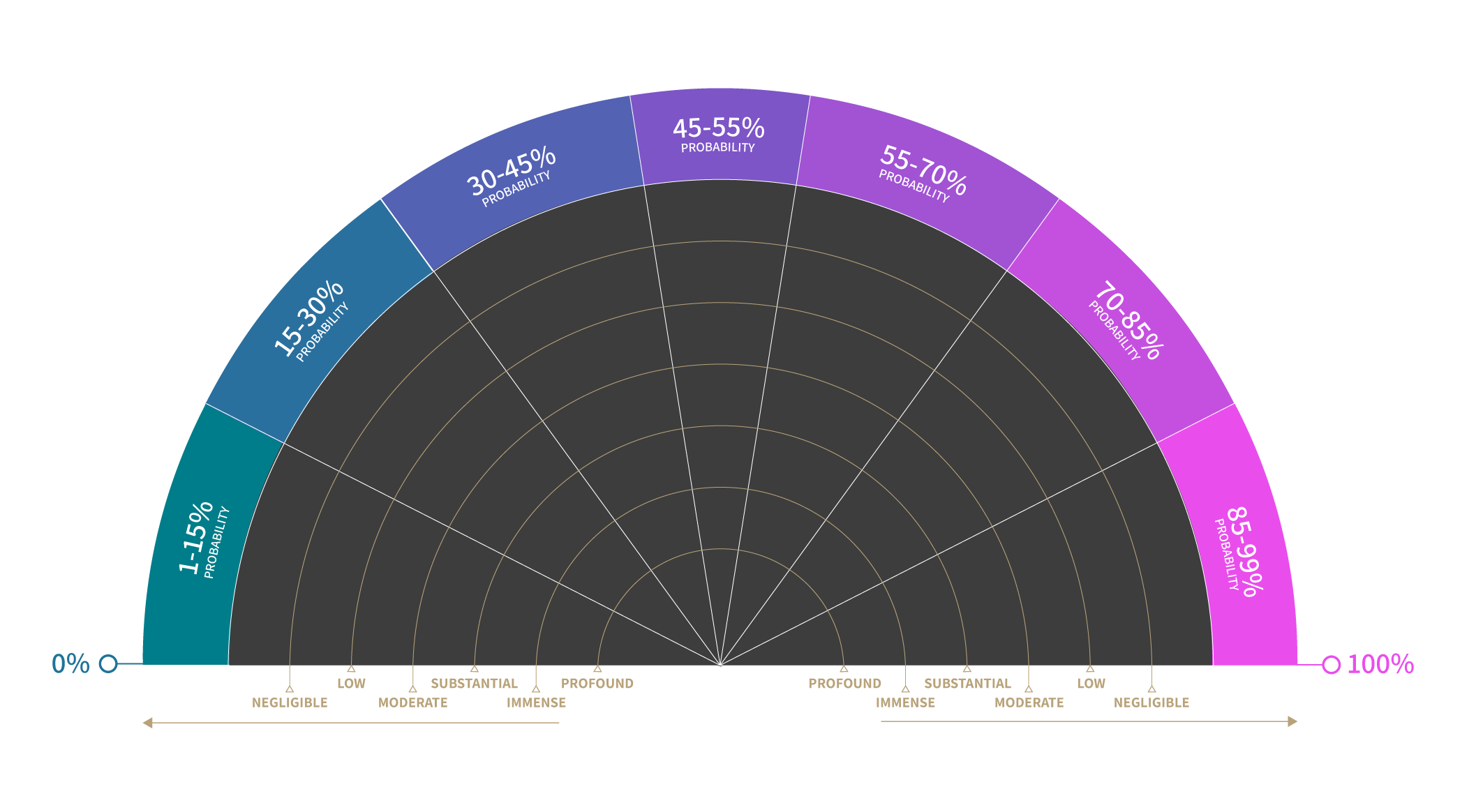
CLICK ON FLAGS TO
SHOW INFORMATION




















Forecasts
East and Southern Africa
Dates to watch
Key indicators
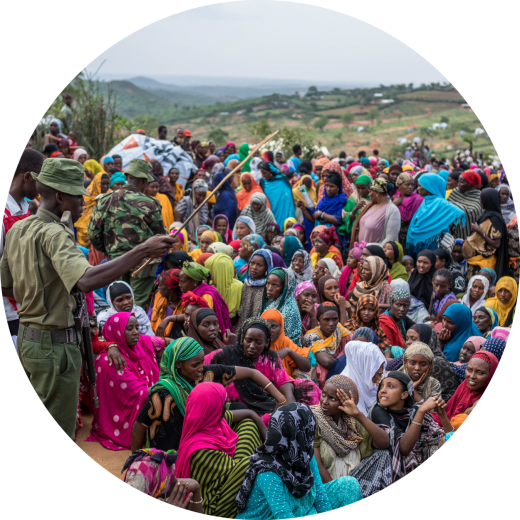
Migration flows
A worsening conflict in Ethiopia is putting neighbouring countries under additional political and economic strain. This is likely to result in knock-on crises in countries such as Eritrea, Kenya, South Sudan and Somalia, in particular resource and inter-communal conflicts. In a worst case scenario this would lead Kenya to push the African Union to consider intervening militarily in Ethiopia.
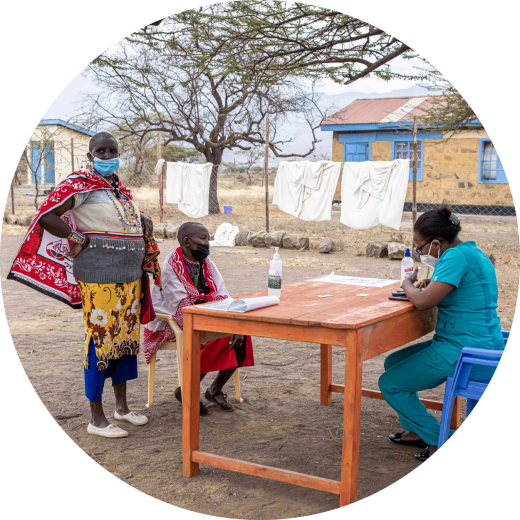
Covid-19 vaccination rates
Demand for multiple doses of vaccines in other parts of the world has meant that many countries in Africa are struggling to secure sufficient doses. As the region lags behind in vaccinating populations, it will remain vulnerable to new waves of Covid-19 infections, strained healthcare systems and snapbacks in restrictions. This is likely to also add as a drag on economic recoveries, and will contribute to many of the persisting risks around unrest and political instability.
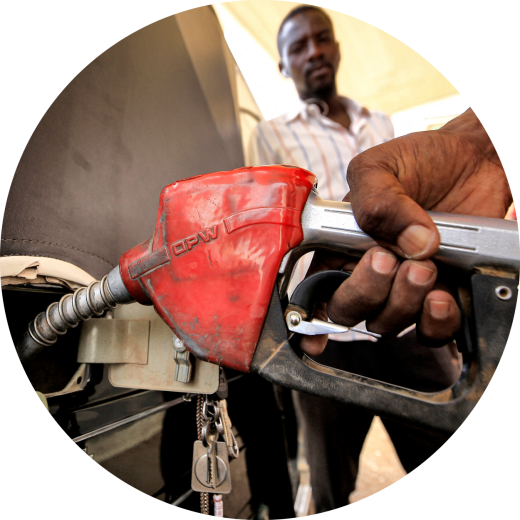
Commodity prices
With many regional economies reliant on commodity exports, rising prices provide some cause for optimism as countries recover from the financial impact of the pandemic. But these price rises are far from stable, and supply chain constraints mean that resulting government revenues will remain volatile. The critical nature of commodity sectors to the region also give trade unions considerable political leverage as they try to extract better conditions for workers. And so rising commodity prices will contribute to more industrial action.
Risk dashboard
Infographic
Assessment
Forecasts
Dates to watch
Key indicators
Scroll down

Images: Getty Images (Brian Otieno; Patrick Meinhardt; Ashraf Shazly)
East and Southern Africa
End of Ramadan
1 May
Ethiopia
Derg Downfall Day - End
of military rule
28 May
Ethiopia
Independence Day
24 May
Somaliland
Anniversary of the breakaway from Somalia
18 May
South Africa
Anniversary of Nelson Mandela being elected president in 1994
9 May
East and Southern Africa
Eid Al-Fitr
2 May–3 May
Rwanda
Day of Remembrance of the Victims of the 1994 Genocide
7 April
East and Southern Africa
Start of Ramadan
2 April
Uganda
Martyrs' Day
3 June
East and Southern Africa
Earth Day
22 April
East and Southern Africa
Annunciation Day
25 March
Mozambique
Anniversary of Palma attack in Cabo Delgado
24 March–5 April
Kenya
Fifth session of the UN Environment Assembly
in Nairobi
28 February–2 March
Kenya
Anniversary of Nairobi’s Dusit hotel terror attack in 2019
15 January
East and
Southern Africa
Orthodox Christmas Eve
6 January
South Africa
Zondo Commission
Ongoing
Ethiopia
Rainy season
June–September
Ethiopia
Anniversary of killing of Hachalu Hundessa
29 June
Somalia
Anniversary of 2017 Safari Hotel bombing
14 October
KENYA
Independence Day
12 December
South Africa
ANC conference
December
Lesotho
National and local elections
Before December
Botswana
Rainy season
December–March
Regionwide
African Union Summit
Before December
Ethiopia
Anniversary of outbreak of Tigray War
3 November
Mauritius
Cyclone season
November–April
Uganda
Independence Day
9 October
Eritrea
Rainy season
July - August
Kenya
Anniversary of the Westgate attack
21 August
South Africa
Anniversary of Marikana mine massacre in 2012
16 August
Kenya
General election
9 August
Mozambique
Anniversary of Renamo peace deal signed in 2019
6 August
East and Southern Africa
Ashura
7 August–8 August
East and Southern Africa
Eid Al-Adha
9 July
South Africa
Anniversary of 2021 Durban unrest
9 July–18 July
Mozambique
Cyclone season
January–March


Change is coming


A spread of the civil war,
the resulting humanitarian crisis, and a potential
genocide in Ethiopia would
also have broader and potentially profound implications for stability in
East Africa and beyond.

Southern Africa


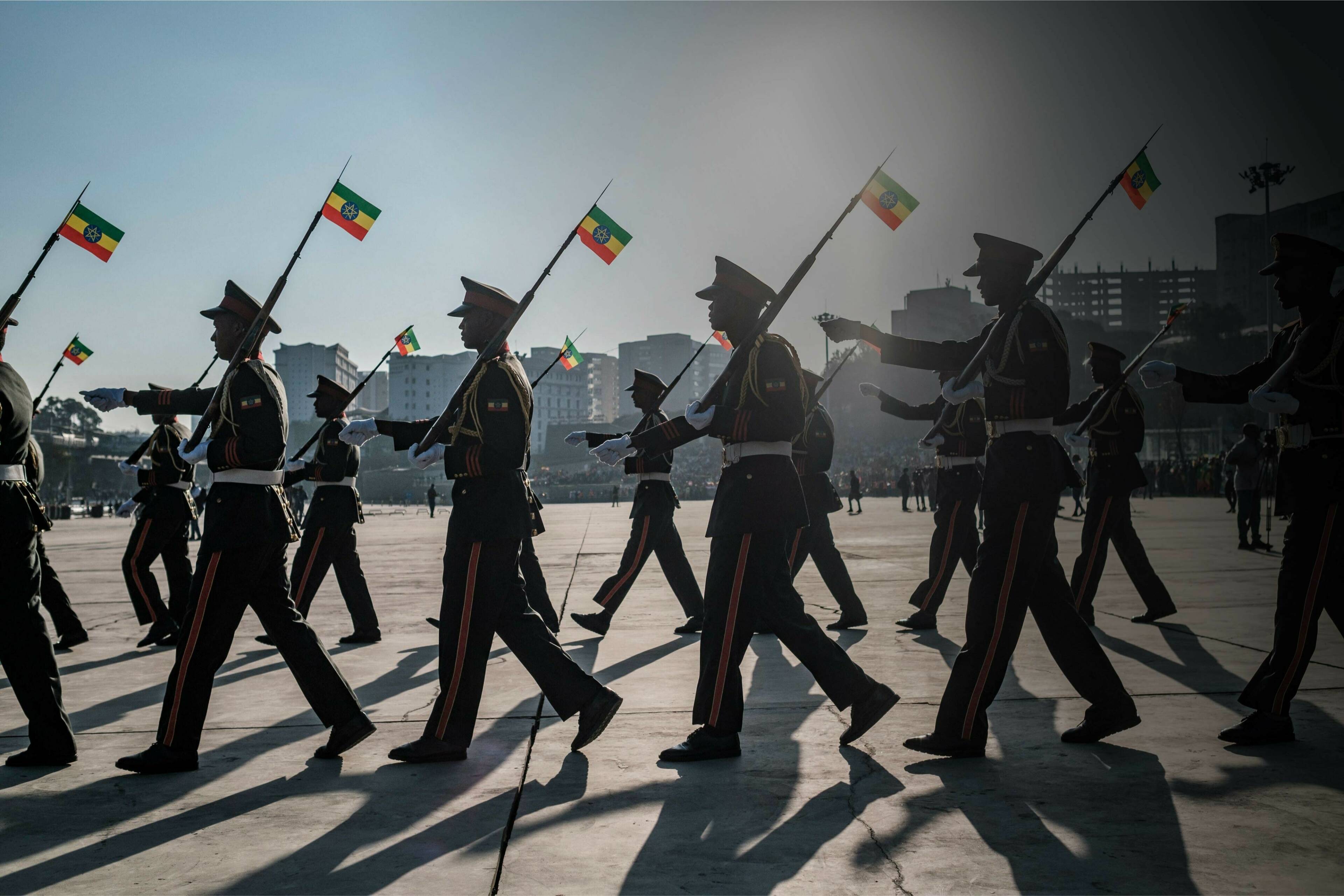

For best results
We recommend that you view this in a desktop browser. If using a tablet or smartphone, some infographics may only respond to device-specific gestures.
Forecasts
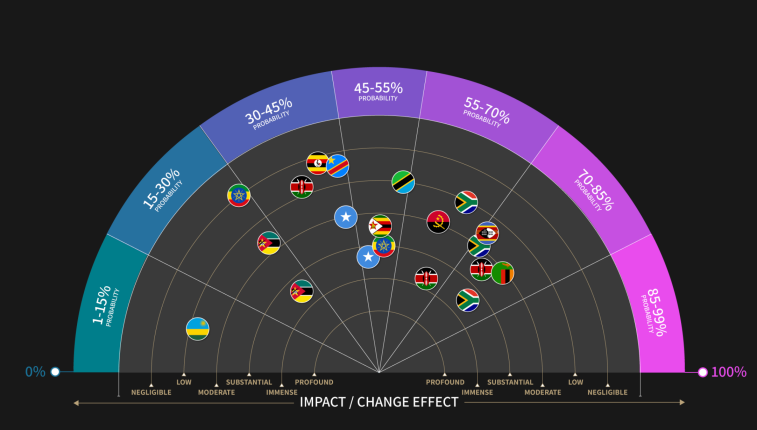

Key indicators
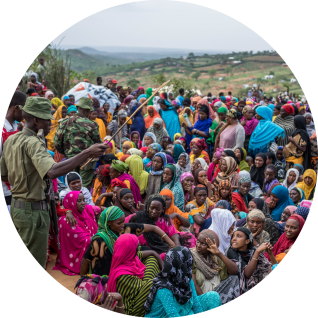
Migration flows
A worsening conflict in Ethiopia is putting neighbouring countries under additional political and economic strain. This is likely to result in knock-on crises in countries such as Eritrea, Kenya, South Sudan and Somalia, in particular resource and inter-communal conflicts. In a worst case scenario this would lead Kenya to push the African Union to consider intervening militarily in Ethiopia.
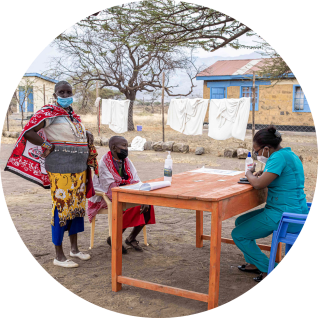
Covid-19 vaccination rates
Demand for multiple doses of vaccines in other parts of the world has meant that many countries in Africa are struggling to secure sufficient doses. As the region lags behind in vaccinating populations, it will remain vulnerable to new waves of Covid-19 infections, strained healthcare systems and snapbacks in restrictions. This is likely to also add as a drag on economic recoveries, and will contribute to many of the persisting risks around unrest and political instability.
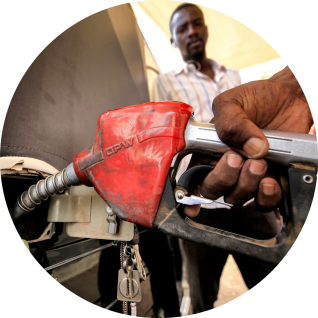
Commodity prices
With many regional economies reliant on commodity exports, rising prices provide some cause for optimism as countries recover from the financial impact of the pandemic. But these price rises are far from stable, and supply chain constraints mean that resulting government revenues will remain volatile. The critical nature of commodity sectors to the region also give trade unions considerable political leverage as they try to extract better conditions for workers. And so rising commodity prices will contribute to more industrial action.
Insecurity and instability in Ethiopia are likely to persist into 2022. As well as the civil war between the Ethiopian government and the TDF and its allies, there is pervasive inter-communal and militia violence. The crisis in Ethiopia is also spilling – and is likely to further spill – over into other regional countries, affecting security, migration patterns and economic growth.
Uganda
Independence Day
9 October
East and Southern Africa
End of Ramadan
1 May
Ethiopia
Derg Downfall Day - End
of military rule
28 May
Ethiopia
Independence Day
24 May
Somaliland
Anniversary of the breakaway from Somalia
18 May
South Africa
Anniversary of Nelson Mandela being elected president in 1994
9 May
East and Southern Africa
Eid Al-Fitr
2 May–3 May
Rwanda
Day of Remembrance of the Victims of the 1994 Genocide
7 April
East and Southern Africa
Annunciation Day
2 April
Uganda
Martyrs' Day
3 June
East and Southern Africa
Earth Day
22 April
East and Southern Africa
Annunciation Day
25 March
Mozambique
Anniversary of Palma attack in Cabo Delgado
24 March–5 April
Kenya
Fifth session of the UN Environment Assembly
in Nairobi
28 February–2 March
Kenya
Anniversary of Nairobi’s Dusit hotel terror attack in 2019
15 January
East and
Southern Africa
Orthodox Christmas Eve
6 January
South Africa
Zondo Commission
Ongoing
Ethiopia
Rainy season
June–September
Ethiopia
Anniversary of killing of Hachalu Hundessa
29 June
Lesotho
National and local elections
Before December
Ethiopia
Anniversary of outbreak of Tigray War
3 November
KENYA
Independence Day
12 December
South Africa
ANC conference
December
Botswana
Rainy season
December–March
Regionwide
African Union Summit
Before December
Mauritius
Cyclone season
November–April
Eritrea
Rainy season
July - August
Somalia
Anniversary of 2017 Safari Hotel bombing
14 October
Kenya
Anniversary of the Westgate attack
21 August
South Africa
Anniversary of Marikana mine massacre in 2012
16 August
Kenya
General election
9 August
Mozambique
Anniversary of Renamo peace deal signed in 2019
6 August
East and Southern Africa
Ashura
7 August–8 August
East and Southern Africa
Eid Al-Adha
9 July
South Africa
Anniversary of 2021 Durban unrest
9 July–18 July
Mozambique
Cyclone season
January–March
Change is
coming
A build-up of systemic weaknesses, socio-economic pressures and political factionalism across much of East and Southern Africa will very probably come to a head in 2022. The region as a whole will be particularly exposed to the destabilising effects of highly probable crises in two of its leading economies.
We forecast further outbreaks of large and potentially-violent protests and unrest in South Africa in 2022. The government is distracted by a split in the ANC party, meanwhile the economy continues to suffer. GDP in per capita terms has fallen each of the past six years, while unemployment has risen steadily over the past decade, with almost half of all young adults out of work.
The impact of the Covid-19 pandemic is almost certain to drag well into 2022 in South Africa. Recent periods of violent unrest, such as in KwaZulu-Natal and Gauteng in July 2021, have hampered foreign investment and economic growth. These are very likely to recur. Caught in a cycle of ongoing governance challenges and Covid-19 hindering recovery, there is little prospect of these negative economic trends reversing in 2022. The frequency of outbreaks of unrest and demonstrations has exploded in recent years, as public patience with worsening socio-economic conditions wears thin.
Frustrations over poor public services and standards of living will remain the two most probable triggers for a sudden outbreak of protests and unrest in South Africa in 2022. But ongoing tensions and factionalism in the ANC party are also likely drivers of civil disquiet. It is widely accepted that supporters of the former president Jacob Zuma were responsible for instigating the violent unrest in KwaZulu-Natal in July. And we warn that Mr Zuma and his supporters will probably try to instigate similar commotion in 2022, as a way to undermine the president. Flashpoints for this include Mr Zuma’s ongoing corruption trial, and the leadup to the ANC party conference in December 2022. >>
Ethiopia is already in a state of civil conflict, which shows every sign of intensifying, destabilising the state, and drawing in outside powers. And South Africa is vulnerable to significant political and social upheaval in the coming year.
This will hurt the growth and long-term stability prospects for both. And as leading economies in the region, crises in both countries will have knock-on implications for their neighbours, allies and adversaries, including on migration, economic growth and trade. Separately, we anticipate that other major economies with contentious elections, such as in Angola and Kenya, are likely to get through 2022 largely unscathed. But they are exceptions to what is a broadly negative outlook.

Images: Getty Images (Brian Otieno; Patrick Meinhardt; Ashraf Shazly)

Engulfed by Ethiopia’s crisis
